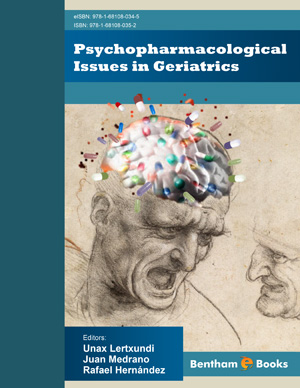Abstract
Dementia is a common off-label use of antipsychotics. However, there are neither controlled studies, nor theoretical grounds supporting their use, especially in the treatment of behavioral disorder, where antipsychotics behave mainly as the “major tranquillizers” they once were meant to be. On the other hand, antipsychotics pose serious risks to elderly, fragile patients with dementia. As a result, treating dementia with antipsychotics could be a case in point of an irrational use of drugs. The chapter reviews untoward effects linked to antipsychotics when used in dementia and suggests some guidelines to make its use less irrational.
Keywords: Akathisia, Alzheimer’s disease, Behavioral and psychological symptoms of dementia (BPSD), Behavioral disorder, Cardiac arrhythmia, Cerebrovascular disorder, Clozapine, Confabulation, Delirium, Dementia, Firstgeneration antipsychotics- Haloperidol, Lewy body disease, Misidentification syndrome, Mortality, Off-label, Olanzapine, Psychosis, Quetiapine, Rational use of drugs, Risperidone, Second-generation antipsychotics, Tardive dyskinesia, Vascular dementia, Venous thromboembolism.






















